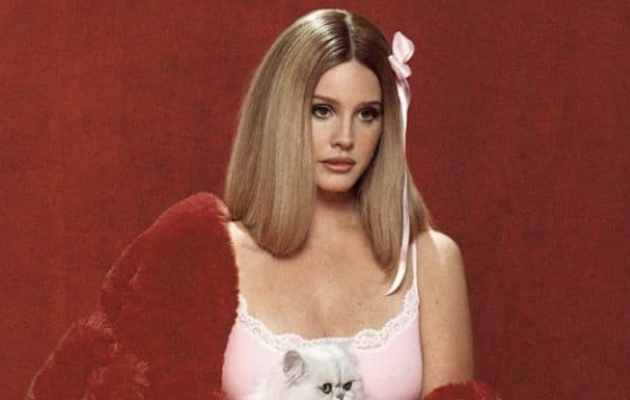Through summer’s heat or winter’s cold, one thing is true: a degree in fashion and retail studies is timeless.
Commencement day is just around the corner, marked by move-out carts on every sidewalk, stressed-out students flooding Thompson Library and near-constant graduation photoshoots all over campus.
In just a few days, champagne bottles will be popped and caps will be thrown as our beloved seniors take their first steps into the world.
Taking a topic that is near and dear to our hearts, we decided to ask the question that many of our almost-alumni are about to experience firsthand: where can a degree in fashion and retail studies (FRS) get you after graduation?
To find the answer, we spoke to Cydni Robertson, a second-year postdoctoral fellow at Ohio State within the FRS department.
After receiving a dual bachelor’s degree in textile and apparel management as well as public leadership and nonprofit organizational management at the University of Missouri, Robertson said she spent a few years in the private sector, working corporate jobs in companies like Omni Hotels & Resorts and Belk.
Ever the go-getter, Robertson said she decided to take a risk, moving out of the corporate setting and back into higher education. While she said she was nervous to make the switch, she knew exactly what she wanted out of her PhD experience, telling her old Capstone professor, Dr. Jung Ha-Brookshire, “I don’t care about the business side. I want to help people.”
And help people, she did. The FRS major provides incredible opportunities for students at Ohio State who might not feel as comfortable with the corporate environment, Robertson said.
“[FRS] makes you more sensitive. How people choose to dress has so much to do with who they are,” Robertson said. “What you put on every day is more than just a choice. It really is an expression of who you are, and we should do a better job of getting to know people for who they are.”
Robertson said FRS has helped her to do exactly this. From studying fast fashion malpractices in El Salvador to working with students at Ohio State, Robertson said she has had opportunities to become “a global citizen,” examining her own empathy, acceptance and sustainable practices not only within fashion but also the world as a whole.
“If you understand the baselines of certain religions or even sexual identity cues or gender expression, you can go out as a professional into the world and inform some of these big decisions that are being made,” Robertson said.
Though corporate might not have been the best place for her, Robertson spoke on the positives of FRS students being funneled directly into the corporate sector:
“Everyone should have their foot in the service industry at least once in their life. Test it out. See if you like it, because some people really thrive in it,” Robertson said. “It’s really important, because those businesses really do impact the community and they impact the economy, and you really learn a lot of tactile and technical tangible skills.”
If you think it’s not for you, Robertson’s biggest piece of advice was, “Try everything and fail quickly.”
“Trust yourself if you don’t like something,” Robertson said. “I feel like your 20s is your best time to change your mind, change it fast and move onto something just as quickly as you got into it.”
There are numerous ways that a degree in FRS can help you succeed out of college, Robertson said.
“You can do anything with this degree,” Robertson said. “You can go into fashion law. There is textile medicine science and textile engineering. There’s course marketing and management. There’s sourcing; there’s environmental human rights.”
Even if fashion and retail studies aren’t your main area of study, there are still many different ways to incorporate fashion not only into your life but also your future career, Robertson said.
“It’s useful for all parts of the world,” Robertson said. “Think hard enough about it, and yeah, literally every other major at Ohio State University could be paired with a Fashion and Retail Studies minor.”
Roberston said she even has students who are talking about GMO cotton and are learning how to make bamboo shoes and sustainable silver.
We also spoke with Julie Hillery, an associate clinical professor at Ohio State, who said that a degree in FRS can take you wherever you want to go.
Hillery said she began her career in fashion working in retail, which is something she had done since she was 16 years old.
Hillery said she received both her bachelor's and master’s degrees in fashion and retail studies at Ohio State in 1988 and was set on wanting to work as a buyer and retail manager but later realized that what she loved the most was helping and teaching others. She said this led her to return to school, receiving her PhD in environment, textiles and design at the University of Wisconsin-Madison in 1995.
Using this new qualification, Hillery said she taught at Northern Illinois University for nearly 13 years.
“[My previous students] are all over the country now, doing really cool things,” Hillery said. “There are a lot of people that are sales reps for companies. I’ve got people who are still in retail management and they love it and people in human resources.”
Hillery suggests taking Ohio State’s professional development course as a sophomore, allowing students the opportunity to learn the relevant knowledge to complete the fashion and retail studies degree’s required internship with ease.
Burlington and Kohl’s are two companies known for their buying offices — a job or internship experience that Hillery said would be great for students who are still learning.
“Retailers in the area know that students who graduate with this program are interested in the fashion industry specifically, so this sets you apart from marketing majors,” Hillery said.
Some of the most important skills these professionals value are flexibility, Hillery said. The ability to adapt, problem-solve, work well in a team and utilize acquired retail math to be an analytical thinker are important skills to have.
Whether you’re more interested in the product development or merchandising track, this program is unique compared to many art and fashion-focused schools.
“We focus on thinking about a product from a business standpoint,” Hillery said. “Asking important questions like, ‘Who's going to wear that and why?’”
Hillery said the best way to validate this major as the right one for you is by getting involved in student organizations, talking with professors, volunteering and looking into whatever’s pulling you in a certain direction.
Whether you end up in law, medicine, human resources, management or agriculture, fashion and retail studies have a place for you—the only thing left to do is to get out there and find it.


